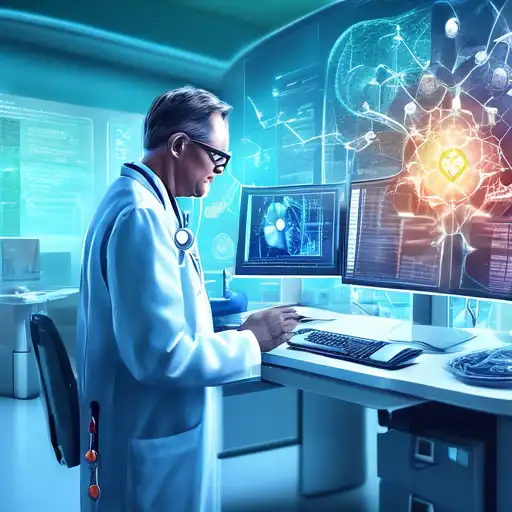The Revolutionary Impact of Data Science on Healthcare
In the modern era, data science has emerged as a transformative force across various industries, with healthcare being one of the most significantly impacted. The integration of data science into healthcare is revolutionizing how we diagnose, treat, and prevent diseases, offering unprecedented opportunities for improving patient outcomes and operational efficiencies.
Enhancing Diagnostic Accuracy
Data science enables the analysis of vast amounts of medical data, from electronic health records (EHRs) to imaging studies, at speeds and accuracies previously unimaginable. Machine learning algorithms can identify patterns and anomalies in data that may elude human experts, leading to earlier and more accurate diagnoses. For instance, algorithms trained on thousands of MRI scans can detect early signs of diseases such as cancer with remarkable precision.
Personalized Medicine
One of the most promising applications of data science in healthcare is the development of personalized medicine. By analyzing a patient's genetic makeup, lifestyle, and environmental factors, data scientists can help tailor treatments that are uniquely suited to the individual. This approach not only improves the efficacy of treatments but also minimizes potential side effects, heralding a new era of patient-centric care.
Predictive Analytics for Preventive Care
Predictive analytics, a cornerstone of data science, is being used to forecast outbreaks, predict patient admissions, and identify individuals at high risk of chronic diseases. This proactive approach allows healthcare providers to intervene early, potentially preventing diseases before they occur or worsening. For example, by analyzing trends in population health data, public health officials can allocate resources more effectively to combat emerging health threats.
Streamlining Healthcare Operations
Beyond clinical applications, data science is optimizing healthcare operations, from hospital management to supply chain logistics. Predictive models can forecast patient inflow, helping hospitals manage staffing and reduce wait times. Similarly, data analytics can streamline the supply chain, ensuring that critical medications and equipment are available when and where they are needed most.
Challenges and Ethical Considerations
Despite its potential, the integration of data science into healthcare is not without challenges. Issues such as data privacy, security, and ethical use of AI must be carefully navigated to maintain patient trust and comply with regulations. Ensuring the accuracy and fairness of algorithms is also paramount to avoid biases that could lead to disparities in care.
In conclusion, data science is fundamentally changing the landscape of healthcare, offering tools and insights that were once the realm of science fiction. As technology advances, the potential for further innovations in patient care and health system efficiency is boundless. However, it is crucial to address the ethical and operational challenges to fully realize the benefits of this revolution.
For more insights into how technology is transforming industries, explore our technology section.
